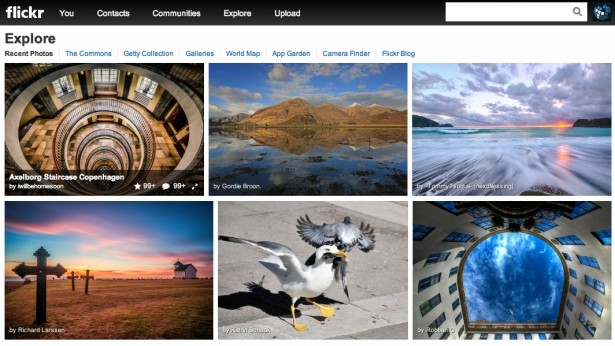
With the news about Tumblr mostly out of the way, Yahoo took the time during its New York City event this afternoon to unveil a major upgrade to its Flickr online photo service.
The UI has been completely overhauled and now relies on a showcase grid style, very similar to Google’s new Google+ pages released last week. With the guiding principle that “photos make the world go ‘round,” Yahoo also implemented an unheard of 1 terabyte storage limit for all users, including those with free accounts. The company revealed in a Q&A session at the end of the event that they wanted to give users a virtually “unlimited” amount of storage, so that almost all users would never have to worry about upload caps.

Other new or improved features include the ability to create slideshows with music from your online library, the ability to view full-bleed photos with minimal UI, improved sharing of photos across Yahoo properties and social media services, and support for storing and downloading “full resolution” images.
While Flickr accounts are free and give users all the benefits listed above, two new paid tiers are also now available. For $49.99 per year, users can remove all advertisements they see while browsing Flickr. For a bit more, $499.99 per year, users can add an additional terabyte of storage to their accounts. The premium price for this additional terabyte underlines how significant Yahoo’s “gift” of the first free terabyte truly is.
The Flickr website is not alone in receiving updates; the services mobile apps on iOS and Android have also been redesigned and will be rolling out soon.
Flickr was first launched in February 2004 by Vancouver-based Ludicorp. Yahoo acquired the company in March 2005 for a reported value of $35 million. Over the years, the service has expanded to support larger photos, improved sharing, and video uploads. It now has over 87 million users and hosts more than 8 billion photos.
The new Flickr is available right now. Users with existing Yahoo accounts can log in directly, and the service also supports the use of Google and Facebook accounts.



















